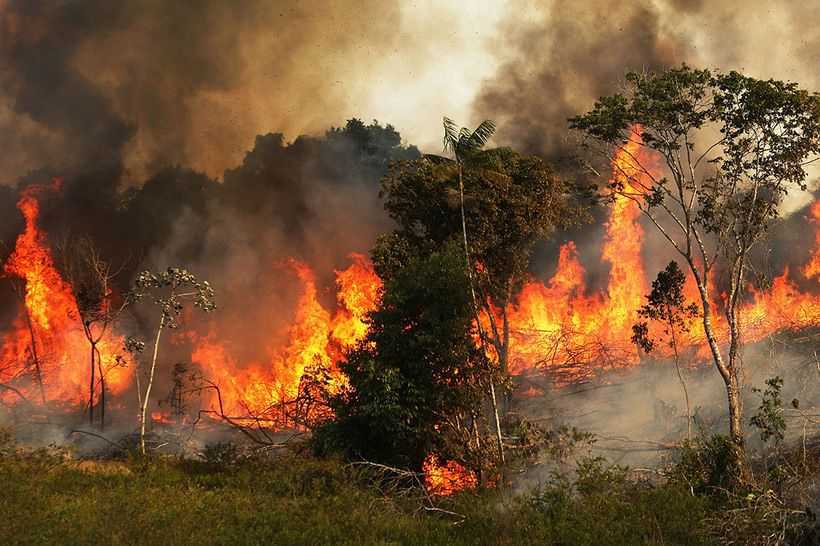Local leaders in the eastern part of Uganda are increasingly concerned about the practice of bush burning among farmers as they prepare their gardens for the next planting season.
The traditional method, often employed to clear land and stimulate new growth, poses significant risks to both the environment and agricultural productivity.
On December 4, 2024, during a phone interview with our Nexus Media reporter, Alfred Okiria, the LC 1 of Ousia Village, Apapai sub-county, Kaberemaido district said that bush burning has reduced fertility in the soil, smoke has affected people, most especially asthmatic ones in the area, plants in the neighboring gardens have been left to dry, some animals like goats and cows have been affected, and homes have been burned to the ground.
“Unnecessary bush burning in my area has eliminated rotten grass that supports soil fertility in our agricultural practice,” Okiria said.
According to Mathew Emeru, a local councillor for Kakusi Village, Olio sub-county, Serere district, bush burning has been a valued practice in various regions, including northern Uganda, where farmers believe it enhances soil fertility and provides better grazing for livestock.
However, he said these fires do spread uncontrollably to the extent of destroying crops, forests, human settlements, and animal settlements.
Emeru added that after bushes are burnt, they experience unfavorable weather conditions, leading to long-term environmental degradation.
“What we have experienced about this method is counterproductive for sure; farmers shouldn’t practice it anymore,” Emeru said.
The opinion leader of Ojama village, Kyere sub-county, David Ochen, said that the persistence of bush burning is partly rooted in cultural traditions and misconceptions about its benefits because many farmers lack awareness of the detrimental effects of this practice and that communities do not recognize the extensive damage caused by bush fires.
“These traditional beliefs have caused trouble for the environment,” Ochen said.
He added that some fires in villages are sometimes ignited by children playing, further complicating efforts to control this behavior, as it causes grudges and fights among community members.
Despite existing laws like the Prohibition of Burning of Grass Act (1974), which restricts intentional burning without proper authorization, enforcement remains weak because local leaders do not have incentives or alternative methods for land management, which makes changing entrenched practices a challenge.
There is a need to promote awareness about the dangers of bush burning and educate farmers on sustainable agricultural practices as alternatives, such as leaving vegetation to decompose naturally in the soil to enhance fertility and adopting rotational farming techniques to mitigate the risk of wildfires that threaten both agriculture and biodiversity.
Farmers need to foster a shift in mindset towards more environmentally friendly methods; they can help ensure both agricultural productivity and ecological preservation as the new planting season approaches.
